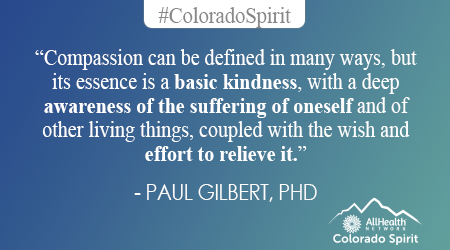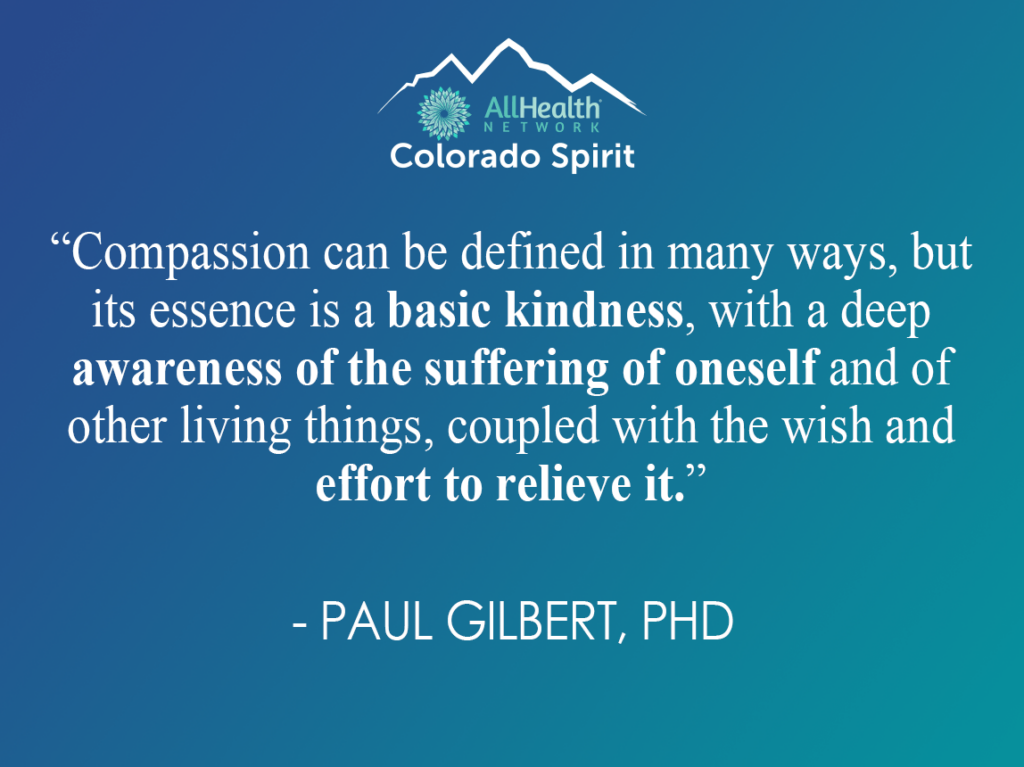As humans, we have several hard-wired responses to stress, like our fight or flight response. There are other, less widely known responses too. Researchers have started looking at a stress response known as tend and befriend. This refers to the pull many of us feel to reach out and support others. Given high stress levels many of us are facing, it is not surprising that we may be more attuned to others’ struggles right now and may be wondering how we can be a support.
Check in with yourself
First, we recommend you check in with yourself. How are you really doing at the moment? Are you in a place to offer compassionate and empathic support? Even with the best intentions, if we try to support others when we are not in a solid place ourselves, we can inadvertently make things worse or become overwhelmed ourselves. Sometimes, even if the urge to tend and befriend is strong, we may need to first practice tending and befriending ourselves. Some of our past posts on anxiety, uncertainty, and trauma offer suggestions around this topic.
In a good place? Reach out!
Once you are in a good place to be a support, reach out! This can take many forms, depending on your relationship with the person; a heart- to-heart conversation, a quick text message letting someone know we are thinking of them, or a suggestion to socialize (in whatever way feels safe and comfortable to you both) can all be effective. What you do specifically is not as crucial as conveying the message you are there.
As the Seize the Awkward campaign reminds us, whatever gets you talking works.
If someone does want to talk, make sure you are in a place to listen and respond with compassion and empathy – not sympathy. As Brené Brown reminds us, sympathy drives disconnection (which is the complete opposite of what we are going for!).
This quick video explains the difference between the two and helps frame why an empathic response to our struggles is so meaningful to us as humans.
Not everyone wants to talk, still ways to help
While talking with others about what they are feeling, thinking, and doing is one way to support them, sometimes folks aren’t in a place that they want to talk or we may not be the person they feel most comfortable opening up to. This is where action-oriented support can be really helpful. Offers of specific, concrete support can go a long way here. Instead of asking folks if there is anything we can do for them, we might offer to send them a meal, walk their dog, or pick up something for them while we are at the store. These tangible offers of support can often go a
If you are concerned someone is struggling with a mental health crisis, substance use, or may not be able to stay safe, know the Colorado Crisis Line is a great resource for offering coaching to any of us who want to talk through our concerns and how we might offer our loved ones support. They can be reached year round at 1-844-493-8255 (TALK) or text TALK to 38255.
Would speaking to someone help?
AllHealth Network, along with other community mental health centers, is continuing to provide services via telehealth and by phone. Our Crisis Walk-in Center remains open 24/7 and offers in-person care to those experiencing a mental health crisis. For more information and to get connected with our services, please call 303-730-8858. To learn more about what other community mental health centers are doing, please visit the Colorado Behavioral Health Council COVID-19 website.
If you are experiencing a mental health crisis and are in need of immediate assistance, please call the Colorado Crisis Hotline at 1-844-493-TALK (8255) or text TALK to 38255
How do you know if you’re experiencing a mental health crisis? Click here to learn about mental health crisis warning signs to look out for from the National Alliance on Mental Illness (NAMI)


